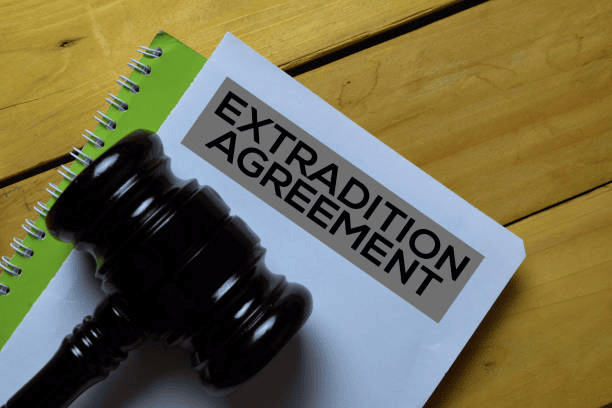Extradition is a critical facet of international law, allowing countries to collaborate in the apprehension and return of fugitives to face justice. This process is especially pertinent in today’s globalised world, where borders can be easily crossed with the advancement of technology and transportation.
These treaties aren’t a guarantee of smooth cooperation. Even when countries have signed an agreement to extradite criminals, several factors can complicate the process. Limited resources within law enforcement agencies, bureaucratic hurdles, and even strained political or economic ties between nations can all make extradition a challenge.
For example, despite an extradition treaty in place since 1978, the US and Mexico faced difficulties for over a decade. This culminated the controversial Camarena affair, where US authorities bypassed the legal route and forcibly took a Mexican suspect.
This article provides an in-depth exploration of extradition, focusing on its implications within New South Wales (NSW), Australia, and how it is shaped by both domestic and international legal frameworks.
What is Extradition?
This refers to the formal process where one country or state surrenders an individual to another country or state where that individual is accused or convicted of a crime. Generally, a state or federal prosecutor meets with the relevant law enforcement agency to learn about the crime and decide whether an extradition is worth the significant costs.
This mechanism prevents countries from becoming safe havens for criminals who flee jurisdictions after their criminal activities. Treaties between countries govern the process, and in Australia, specific legislation further defines it by outlining the protocols and requirements for extraditing persons to and from the country.
The Legal Basis for Extradition in Australia
In Australia, the principal legislation governing extradition is the Extradition Act 1988 (Cth), which sets out the country’s obligations and processes for extradition to and from foreign countries. This act specifies the criteria for requesting extradition, the rights of the person sought, and the roles of different authorities in the extradition process. For extradition cases within NSW, authorities must adhere to these federal guidelines to ensure the process aligns with both national and international legal standards.
Key Features of the Act:
- Eligibility: Only those accused of committing an extraditable offence, typically one punishable by a year or more in prison, are eligible for extradition.
- Dual Criminality: Generally, both the requesting and requested countries must consider the act committed as criminal.
- Procedural Safeguards: The person sought has rights, including legal representation and the right to contest the extradition on several grounds.

Discussing the Procedures: From Arrest to Surrender
The process of extradition involves multiple stages, each requiring meticulous attention to legal details to ensure fairness and adherence to the rule of law.
Stages of Extradition:
- Issuance of a Request: Extradition typically begins with an official request from the foreign country seeking extradition.
- Arrest Warrant and Notification: If authorities accept the request, they arrest the individual and inform them of the reasons and their rights.
- Judicial Review: The court then reviews the case and determines if it meets the conditions for extradition.
- Final Decision: If the court rules in favour of extradition, the government makes the final decision to surrender the individual to the requesting state or country.
Insights from “Matson v The United States of America”
In the notable case of Matson (Roger) v The United States of America [2016] FCA 1548, the Federal Court of Australia examined a complex request involving allegations of serious financial crimes. This case underscores the rigorous legal scrutiny applied in extradition proceedings within the Australian judicial system, particularly under the Extradition Act 1988 (Cth). The judgement, delivered by Justice Rangiah on 22 December 2016, meticulously considered the procedural and substantive legal standards, such as:
- The adequacy of time allowed for the defendant to prepare for the hearing; and
- The application of statutory provisions related to objection.
Roger Matson’s extradition request was thoroughly reviewed in terms of its adherence to international treaty obligations and the specific conditions set out under Australian law. The case delved into the intricate details of the allegations against Matson, who, along with co-conspirators, was accused of engaging in a scheme involving mail and wire fraud related to gambling on horse and greyhound racing in the United States between 1997 and 2000.
The charges encompassed conspiracy to commit mail and wire fraud, with potential maximum sentences ranging significantly, highlighting the gravity of the accusations. Ultimately, Justice Rangiah dismissed the application for a review of the process, affirming the decisions made at lower judicial levels and illustrating the challenges involved in contesting on grounds of procedural fairness and human rights considerations.
The decision reinforces the robust nature of judicial oversight in Australia for these types of cases, ensuring strict adherence to legal standards and respect for individual rights throughout the process. This case remains a critical reference for understanding the dynamics of international legal cooperation in criminal matters within the Australian legal context.
Challenges and Considerations
These cases often involve complex legal, ethical, and human rights considerations. They can be particularly contentious when the person sought faces the death penalty, torture, or unfair treatment in the requesting country.
Ethical and Human Rights Considerations:
- Risk of Unfair Trials: Ensuring that the extradited individual will receive a fair trial is paramount.
- Human Rights Protections: Before granting extradition, authorities must address concerns such as potential torture or mistreatment.

JB Solicitors: Your Legal Experts in Extradition Law
When facing extradition, you cannot overstate the importance of expert legal counsel. JB Solicitors, a renowned firm in NSW, specialises in handling complex legal issues. Our team of experienced solicitors ensures comprehensive legal support and protection of your rights throughout the process.
Why Choose JB Solicitors for Extradition Cases?
- Expertise and Experience: Our solicitors have extensive knowledge of both domestic and international offences and laws.
- Client-Centred Approach: We prioritise your rights and interests, offering personalised legal strategies.
- Proactive Legal Defence: Want to refuse extradition? Our team works tirelessly to challenge tehse types of requests when grounds for defence are strong.
In the often-intimidating world of international law, having JB Solicitors by your side can make a significant difference. For individuals facing extradition, the stakes could not be higher, and it is crucial to have skilled professionals who can navigate the complexities of these legal proceedings.
For expert legal assistance on these matters, do not hesitate to contact us today. Whether you are seeking advice or need vigorous defence against an extradition request, JB Solicitors is here to help you every step of the way.
